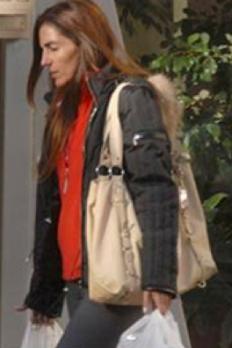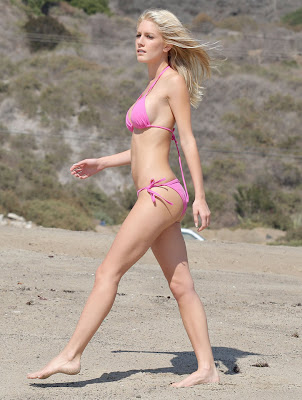Chapter 3
“Look at this–someone’s been here on horseback,” I noticed about half way down the west side of Wolf Lake.
Carlson bent over and studied the ground. “Yeah, I’d say a single horse.” He stood up and called out, “Dawes, Mason, we might have something here.”
Carlson dropped the stakes he was holding on the ground and I laid the tape beside them. Smoke and Todd Mason took a break from their tasks and joined us. We all studied the hoof patterns.
“Looks like a guy was riding along and stopped here . . . the hoof prints follow down to the water. Probably letting the horse get a drink. On the other hand, could be to throw a leg in the lake,” Smoke added.
I had been thinking the same thing. Mason and Carlson both nodded.
“A lot of people ride the trails in the park, Smoke. I saw a couple unloading horses from their trailer when I drove through yesterday,” I said.
“It is a great place for riding,” Mason said.
“Ever take a cast of horse hoof impressions?” Smoke asked.
“Nope.” Carlson and Mason agreed, shaking their heads.
“It’ll be a new one for you, then.” Smoke got down on his hands and knees and perused the prints. “You’re the farm kid, Corky. These hoof prints tell you anything?”
“About the horse?” I studied for a moment. “Well, it was barefoot, meaning it didn’t have horseshoes on. These ridges are most likely ‘grass rings’ because they run all the way around the foot.” I waved my hand over the hoof pattern.
“What does that mean?” Smoke asked.
“That the horse is pastured and when there are changes in the weather conditions–you know, moisture followed by periods of dryness in the pasture–they develop. Temperature changes are another cause. They’re pretty common. Oh, and it also happens when there is exercise followed by little activity for a while.”
Smoke crawled backward a few steps, then jumped to his feet. “And what does that tell us?”
I shrugged. “The owner keeps his horse in a pasture in Minnesota where the weather fluctuates from hot to cold, wet to dry.”
“Like the rings on a tree? You can tell what the weather was like by how thick the ring is?” Mason asked.
“Not quite.”
“Back to our horse and rider,” Smoke directed.
“Maybe the guy has a busy schedule and rides the horse when he can,” I offered, shaking my head. “I’m not an expert on horse hooves. Oh, look, there’s a crack on the right front hoof.”
The three officers drew closer to me as I pointed out the flaw.
“What’s that from?” Carlson wondered.
“Maybe a harder ride some time–got a little injury. A farrier could fix it. I’m thinking the horse is most likely pastured and probably not ridden a lot.”
“So not a horse from one of the riding stables?” Smoke asked.
“No, they’d have shoes on their horses.”
“So why would a guy not shoe his horse?” Mason asked.
“It’s not the way nature intended, I guess. Shoes can cause lots of problems. Like, they restrict blood flow to the hooves and interfere with the natural expansion and contraction of the hoof when it’s weight-bearing. Plus, the nails driven into the hooves leave holes and weakened areas.”
The sheriff joined us. Engen still sat–more like slouched–in a lawn chair on her patio.
“What’d ya got going here?” Twardy asked.
As Smoke explained, I walked down the road about eight feet then headed back, examining the prints. I paused where the horse had stopped by the lake.
“Hmm. Okay, guys, this is interesting. C’mere.” I waved them to follow me.
“We have a rider going down the gravel road. Not much for impressions where the gravel is packed hard, but here, more on the shoulder, the impressions are deeper.”
The team stayed close. “Then we get to the spot . . . here . . . where the horse goes to the water’s edge, stands there for I don’t know how long, then backs up, turns around and . . .” I led the others as we followed the prints across the road and back south again for a few feet.
“Damn.” Smoke said.
“You got it. The horse was carrying a heavier load before it stopped then it was after it got going again.”
“So, that kinda backs up my gut feeling there is more of our victim in the lake than that one leg we got lying over there.” Smoke took in a big inhale and blew out the air slowly, one of the things he did when he was pondering something.
“What do you figure the horse weighs, any guesstimates?” The sheriff directed his question to me.
“That’s all it would be is a guesstimate.”
I paced off the distance from the front and hind legs when the horse was in a standing position. “I would say the horse is about . . . five feet . . . in length . . . fourteen to sixteen hands . . . around a thousand pounds. With a rider, maybe twelve-hundred. The impressions are fairly deep, but not excessively so.”
The sheriff had been part of the Winnebago County Mounted Patrol Unit and most likely knew more about horses than any of us, but he kept that to himself. Sheriff Twardy was a unique leader. He showed up at all the major crime scenes–he said it was too much in his blood not to be there–but he mainly observed and rarely gave any directions or orders. He trusted his officers to conduct the investigations and come to conclusions based on what they found.
“Yeah, I’d say a thousand, give or take, is about right,” Smoke agreed. “Sheriff?”
The sheriff considered and nodded.
Smoke rubbed his jaw. “What’d you suppose that leg weighs? What, fifteen, twenty pounds?”
I shrugged and said, “Maybe.” I discreetly lifted my right leg slightly and tried to guess its weight, something that had never occurred to me consider until that very minute.
No one else commented, but they appeared deep in thought.
“Twenty pounds wouldn’t add much weight, but, say one hundred-thirty, forty, fifty pounds would be enough to explain the deeper depressions.” Smoke squatted for another close check. “We’ll send the impressions to the BCA for their expert opinion, but that’d be mine, if I had to give it.”
He stood up and stuck his reading glasses in his pocket. “Mason, Carlson, finish marking off the scene and get it photographed. Aleckson, we’ll follow these hoof prints, see where they lead to.”
“You want underwater recovery started?” Mason asked.
“You’re part of that, right?” Smoke said.
“Yup. So’s Carlson.”
“You got your gear with?”
Mason nodded. “We threw it in the unit when we heard ‘lake.’”
“Good. Yeah, why don’t you give Warner a holler. Tell him to load up the boat and assemble the rest of his team. We should have this much processed before the whole place is crawling with deputies. Corky, let’s take that walk. Why don’t you grab your camera?”
Carlson picked up the crime scene tape and stakes and handed the tape to Mason. He helped Carlson finish the job I had started, continuing to the south side of the lake where the shoreline turned east and the road continued south. The sheriff moved to the outside of the marked area.
I found a camera in its case in my trunk, pulled the attached strap around my neck, and caught up with Smoke.
A newer gray Toyota made its way toward us at a fairly fast clip, then slowed when it got closer. The man in the vehicle raised and lowered his hand in a quick wave of acknowledgement and pulled into the Engen’s driveway. He got out of the car and Tara was in his arms a second later.
“Good.” Smoke gave me a relieved nod. “Let’s move.”
We walked south on Abbott Avenue to Eighty-fifth Street and started to turn left. I glanced back to see Mason taking pictures of the horse hoof prints and Carlson writing in a pocket notebook. The sheriff had his arms crossed on his chest, watching them work.
“Wait a minute.” Smoke stopped and pointed. “The prints are coming and going both directions. Let’s head west first.” We walked about one hundred yards to the edge of a small swamp where the horse and rider had been.
“I sure hope this doesn’t mean there’s another body part in this swamp,” I said.
“Doesn’t look good, does it? Better snap some photos of these, in case.”
“The prints look like they came from the direction of the park–rode to the swamp here–turned around and headed up Abbott to Wolf,” I narrated as I took the pictures.
“I guess we’ll find out if that means anything when underwater goes into Wolf. If we don’t find the rest of her in there, this is going to turn into an even bigger nightmare than it already is. We got about four hours of daylight left–a little less. Let’s head east.” Smoke pointed to where the road ended and the grassy area began. “Looks like he stayed on the road for a while, then headed into the park here.”
“Smoke, a horse could have traveled for miles,” I protested, snapping more shots.
“Yeah, I basically wanted to see if he came from the park. I’ll have boat and water load up the four-wheeler–”
I interrupted. “Maybe a mounted patrol would be better–could go where the other horse did. It’d be easier for the rider to see than from a four-wheeler.”
Smoke smiled and tapped me on the back. “Now you’re thinkin’. We’ll head back and I’ll call in the reinforcements.” He opened his phone and hit two digits on speed dial.
“Robin? . . . Yes, it is a real leg . . . Young, twenties, thirties . . . Horrible is one word for it . . . Underwater’s already been called, you should hear them rolling any minute. What I need is one mounted. Who’s on call? . . . Called in sick? Okay, well who’s next on the list? . . . Good. Get him out here, a-sap.”
By the time Smoke clapped his phone shut, we were back on Abbott.
“What would possess someone to cut somebody up?” I asked, hypothetically.
I had some knowledge on the psychology of why.
“Very, very sick people are possessed in the most bizarre ways. Has to be the first dismemberment case in the county’s history–that I know of anyway. The sheriff said it’s the first in his thirty-one years.”
“Makes Alvie Eisner look a little less crazy,” I thought out loud.
“Yeah, right.” Sarcasm oozed through his words. “Don’t go down that road or you’ll drive yourself crazy trying to figure out the motivations of society’s sickos.
“‘Vice is a monster of frightful mien
As to be hated needs but to be seen
Yet seen too oft, familiar with her face
We first endure, then pity, then embrace.’”
I stopped to watch Smoke during his recitation. “Okay! Where did that come from?”
“‘An Essay on Man’ by Alexander Pope, English poet, late 1700s. We read him in a college English class I took about a hundred years ago. For some reason, those lines stuck with me.”
“Alexander Pope? The name is familiar, but–”
“You’ve heard him quoted a lot. He’s the guy who wrote ‘a little learning is a dangerous thing’, ‘to err is human, to forgive, divine’, ‘fools rush in where angels fear to tread’, ‘hope springs eternal.’”
I smiled and nodded. “Oh, he’s the guy? Well, thank you, Professor Dawes.”
Smoke bent over slightly in a mock bow. “Any time. Change of subject: since you brought up our least favorite inmate–let me reiterate–I do not want you seeing Eisner. Period. She had her chance to spill her guts. You are not at her beck and call, little lady.” Smoke hit the palm of his hand with the opposite fist. “My insides turn over every time I remember how you looked after your fight with that monster.”
“All right, detective. We both know we’re not going to settle this today. Let’s talk about it later.”
“Yeah.” Smoke studied the lake, obviously thinking about the secrets it may be holding. “What we got going here is priority one.”
On that we could wholeheartedly agree.
Christine Husom is the Second Wind Publishing author of Murder in Winnebago County and Buried in Wolf Lake























